Search Results
Showing results 1 to 20 of 50

From the Internet to Outer Space
Source Institutions
In this activity, learners will use Google Sky to observe features of the night sky and share their observations.

Draft Detectives
Source Institutions
In this two part activity, learners become draft detectives by constructing their own draft catchers to detect drafts around windows or doors.

Tiny Particles, Big Trouble!
Source Institutions
In this activity, learners discover why some nanoscale science and technology is done in the controlled environment of a clean room, what clean rooms are like, and how scientists help keep the clean r
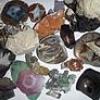
Mineral Scavenger Hunt
Source Institutions
In this activity, learners participate in a scavenger hunt, searching for and recognizing minerals and products that contain minerals.

CD Spectroscope
Source Institutions
In this activity, learners use an old CD to construct a spectroscope, a device that separates light into its component colors.

An Apple as Planet Earth
Source Institutions
In this environmental education demonstration (page 6 of the PDF), learners will see a tangible representation of the scarcity of soil resources on earth.

Gummy Shapes
Source Institutions
In this activity, learners use chemistry to “self-assemble” gummy shapes. Learners discover that self-assembly is a process by which molecules and cells form themselves into functional structures.
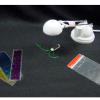
Why are Compact Fluorescent Bulbs More Efficient?
Source Institutions
In this activity, learners explore the relative efficiency of different bulbs, specifically incandescent vs. fluorescent.
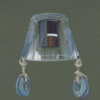
Submarine: Soda Cup Lander
Source Institutions
In this activity (on page 2), learners create a submarine using a plastic cup. This is a fun way to learn about buoyancy and density.

Water Filter
Source Institutions
In this engineering activity, challenge learners to invent a water filter that cleans dirty water.
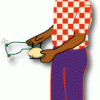
Fruity Electricity
Source Institutions
In this activity, Frankenstein's lab is running out of electricity! Learners use fruit to help Igor find a temporary source of energy to turn on a light.

Extinct!: Are You Smarter than a Plant?
Source Institutions
In this online activity, learners find out whether they are smart enough to survive as a plant.
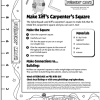
Make Ziff's Carpenter's Square
Source Institutions
In this Cyberchase activity, learners make carpenter's squares and use them to measure square corners. Learners cut out the carpenter's square template and attach it to tagboard.

Strengthen a Paper Bridge
Source Institutions
In this quick activity (page 1 of the PDF under SciGirls Activity: Tug O' War), learners will test how many pennies a flat paper index card bridging the gap between two stacks of books is able to supp
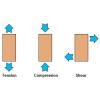
Forces on the Human Molecule
Source Institutions
In this physical activity, two lines of learners link hands and arms to model a beam subject to various loading schemes.

Programming Languages: Harold the Robot
Source Institutions
In this activity related to computer programming, learners give directions to a "robot" (either an adult or another learner) and find out which instructions the robot is able to follow, and how their
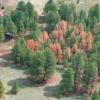
Bark Beetle Infestation Investigation: Estimation and Pheromones
Source Institutions
This activity investigates how bark beetles can threaten forests by having learners estimate the number of infected trees from a photo.

Rocket Pinwheel
Source Institutions
This is an activity about motion, power, air and Newton’s Third Law of Motion, which states that for every action there is an equal and opposite reaction.

File Card Bridges
Source Institutions
With two stacks of books and a few rolls of pennies, build two kinds of bridges--a beam span and an arch span--and see how much weight each of them can hold.

Does Size Make a Difference?
Source Institutions
In this activity on page 15 of the PDF, discover how materials and physical forces behave differently at the nanoscale.
